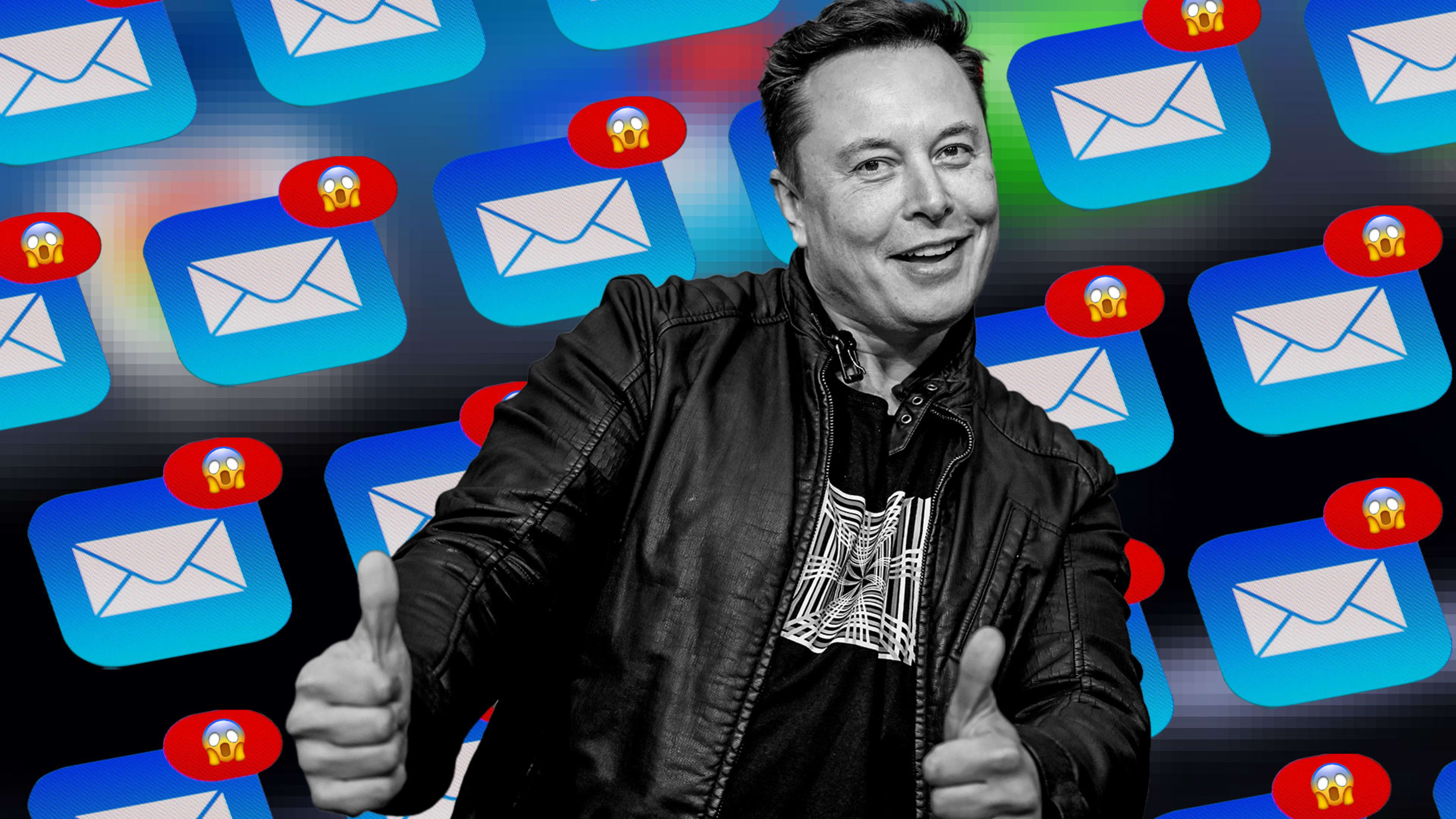Elon Musk has made quite a first impression on his new employees. During his first few weeks as CEO of Twitter, he laid off some 3,700 workers.
Since acquiring the company on October 27, Musk hadn’t formally spoken to the majority of staff who remain at Twitter. “Any sort of communication about anything would honestly just be the first step,” one Twitter employee working out of the company’s New York City office told me last week. “No one hears anything.”
Today, Musk fixed that—sort of—but, in so doing, managed to send what some leadership experts describe as the worst opening email from a CEO to employees in recent memory, in part, because of its dire tone. “The road ahead is arduous and will require intense work to succeed,” the newly minted chief executive warned at at 2:39 a.m. ET.
“I can’t tell if it’s intentional, or his ego is just so big that it blots out all sense,” says one Twitter employee who received the email. (This individual as well as the other staffers interviewed asked to remain anonymous due to fear of retaliation.)
Here’s why experts say Musk’s email misses the mark from a leadership point of view:
An insincere introduction
The message explains that Twitter is in a perilous state and that employees need to hustle harder, and that they can no longer work from home.
“This is an example of really poor communication and leadership,” says Andrew Brodsky, assistant professor of management at McCombs School of Business at the University of Texas at Austin, pointing to Musk’s opening paragraph, which starts, “Sorry that this is my first email to the whole company, but there is no way to sugarcoat the message.”
Starting off with such an apology comes across as insincere, says Brodsky, an expert in workplace communication. “As the CEO and owner of the company, he has a choice of any email that he can send as his first email. If he was truly sorry, this wouldn’t be his first email.”
The tone of the email declines from there.
An overly dark tone
“The economic picture ahead is dire,” said Musk, warning Twitter is “doubly vulnerable” because of its ad-driven business model. Without changes, “there is a good chance Twitter will not survive the upcoming economic downturn.”
That said, Musk’s message “is remarkably free of business bullshit,” says André Spicer, dean and professor of organizational behavior at Bayes Business School, City, University of London. “The straight-shooter style is part Musk’s personal brand building, part response to a looming crisis in the firm.”
In that sense, says Spicer, it’s not the worst email ever. “When faced with immediate crisis, the best communication style is direct,” he says. But Spicer adds that the best communicators are also compassionate. “During a crisis, the best leadership style is to give employees some sense of safety which serves as a basis for creative change,” he says. “It’s hard to see how Musk is doing that.”
“Managers [should] use proper management techniques like enthusing people, not frightening them and not making them feel insecure,” says Sir Cary Cooper, professor of organizational psychology at Manchester Business School, University of Manchester, in the U.K.
An abrupt RTO announcement
If the tone of the email is bad, the company news dropped in the middle is perhaps even worse. Musk abruptly announced that Twitter is axing employees’ ability to work remotely starting November 11. “Usually, good explanations have a reason behind them, so that people can feel that, ‘Okay, you know, there’s a good purpose behind this,’” says Brodsky. “In this case, it’s arguable whether there’s even a good reason to remove remote work.”
“Musk’s practices exacerbate workplace trauma, as he misunderstands worker requirements and aggressively asserts his authority,” says Mariann Hardey, a professor at Durham University Business School in England, who specializes in society and technology. “Musk makes puns and runs on his own [Twitter] feed, ignoring how working patterns, behaviors, and lifestyles have changed. It is not unusual, dare I say even desirable and productive, to work with flexible hours, project completion targets, and team responsiveness.”
Musk could have used his first email to encourage workers and inspire them with deeper values that Twitter employees can believe in, utilizing them as a “foundation of stability during times of change,” says Spicer.
“The best kind of leader-employee relationships are a kind of exchange,” adds Brodsky. “This doesn’t feel like a true exchange where employees feel like the company would deserve their efforts.”
Terrible timing
And finally, there’s the middle-of-the-night timing of the email.
“What message did Musk hope to send by dispatching the missive at 2:30 a.m.?” asks Spicer. “It’s clearly symbolic that the boss is always on the job, and employees are expected to be as well.”
Whatever Musk’s intention, workers say the email was not well received. One staff member in Twitter’s West Coast office said that the email—and particularly its demand that employees return to the office—went down badly.
Far from motivating his dispirited workforce, it did the opposite. “He’s burning the place down,” says the West Coast employee, adding that it feels like “he is definitely ending Twitter.”
Recognize your brand’s excellence by applying to this year’s Brands That Matter Awards before the early-rate deadline, May 3.
